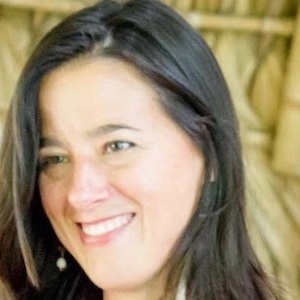Op-Ed: From the Cold War to COVID-19: What I’ve Learned from My Front Row Seat
I’ve been fortunate to have had a front row seat at major inflection points in history, beginning with my time at the Reagan Defense Department during the final days of the Cold War.
I had actually transferred to the White House just a few months prior to Gorbachev’s 1987 visit. Later, I joined Intel Corporation and had a chance to work on a part of the Intel Inside® program, which changed consumer tech purchasing habits forever, leading to Intel’s dominant semiconductor market share in the 90s. My husband and I enjoyed the dot-com boom and thankfully survived the bust.
In 2004-2005, working closely with the auto industry, I hosted a hallmark Nagoya meeting between Toyota patriarch Dr. Shoichiro Toyoda and General Motors CEO Rick Wagoner. Our building was surrounded by hundreds of Japanese paparazzi as the companies battled it out for top global sales position with the Japanese automaker maintaining the edge. And in 2009, as obesity was emerging as a global health risk, I worked with 16 food and beverage company CEOs to help reduce 6.4T calories from 35% of the food sold in the United States.
As an observer, a participant and a leader during times of historic change, I learned to plan for multiple scenarios when redesigning and building high-impact, sustainable operations. Here’s what I know about managing through an inflection point:
• Always plan for disaster. Anticipate that at some stage, something will fail and determine whether or not the systems you have built will survive significant fallout from political or economic events, regulation or new competition. The question I ask daily is, “If we have the worst market crash tomorrow will we be able to sustain our core research infrastructure?”
• Hire smart people and help them move quickly by moving boulders out of their way.
• Look for opportunities to partner with other organizations to decrease costs by supplementing existing activities, creating new channels or outsourcing lower-yielding but well-loved legacy initiatives.
• Run as fast as you can. Do not slow down. You only have a short window of time in which to build and you need to move quickly.
• Preserve cash. Organizations who maintain lean operating systems and build reserves have the highest probability of riding out the worst market.
In 2018, when I joined FARE [Food Allergy Research and Education] as its CEO, rather than experience an inflection point, for the first time I may have created one for the organization. With a remit to restructure the organization and facilitate high-net-worth donor and industry investment to drive therapies and diagnostics into the marketplace to meet the needs of an underserved patient community, in 12 months we received $75M in commitments and put into place a cash conservation plan.
Now amidst the COVID-19 pandemic and even as some states and businesses prepare to open, at another inflection point. You simply never know when the inflection points will arise, yet here we are again as organizations try to pause to help others, while doing their best to stay relevant and generate revenue to support the needs of populations they serve.
Today, my staff knows that all ideas are on the table as we meet 2020 objectives in unanticipated ways. We are culling through my archives of the most innovative concepts executed by former teams during opportunity and crisis as we look for that kernel of a concept that can be reimagined and extended. Interestingly, we are finding that ideas gleaned from science fiction, spy novels and murder mysteries sometimes lead to the next new idea. We take thoughts and play them out in a 100 percent digital engagement or a combination concept like 10 and under in-person salons connected via Zoom across the country. And we find our humor and celebrate wins daily.
As Andy Grove says: “Success breeds complacency. Complacency breeds failure. Only the paranoid survive.” While we are in the midst of a pandemic, and closures and work stoppages may seem disastrous, keep running and do your best to enjoy your front row seat. It will help for next time.
Lisa Gable is CEO of FARE, Food Allergy Research Education, the largest private funder of food allergy research advocating on behalf of the 32 million Americans living with potentially life-threatening food allergies. Lisa’s passion, expertise, and fearless workstyle have propelled her to achieve the titles of CEO, US Ambassador, UN Delegate, Chairman of the Board, and advisor to Presidents, Governors, and CEOs of Fortune 500 and CPG Companies worldwide.










